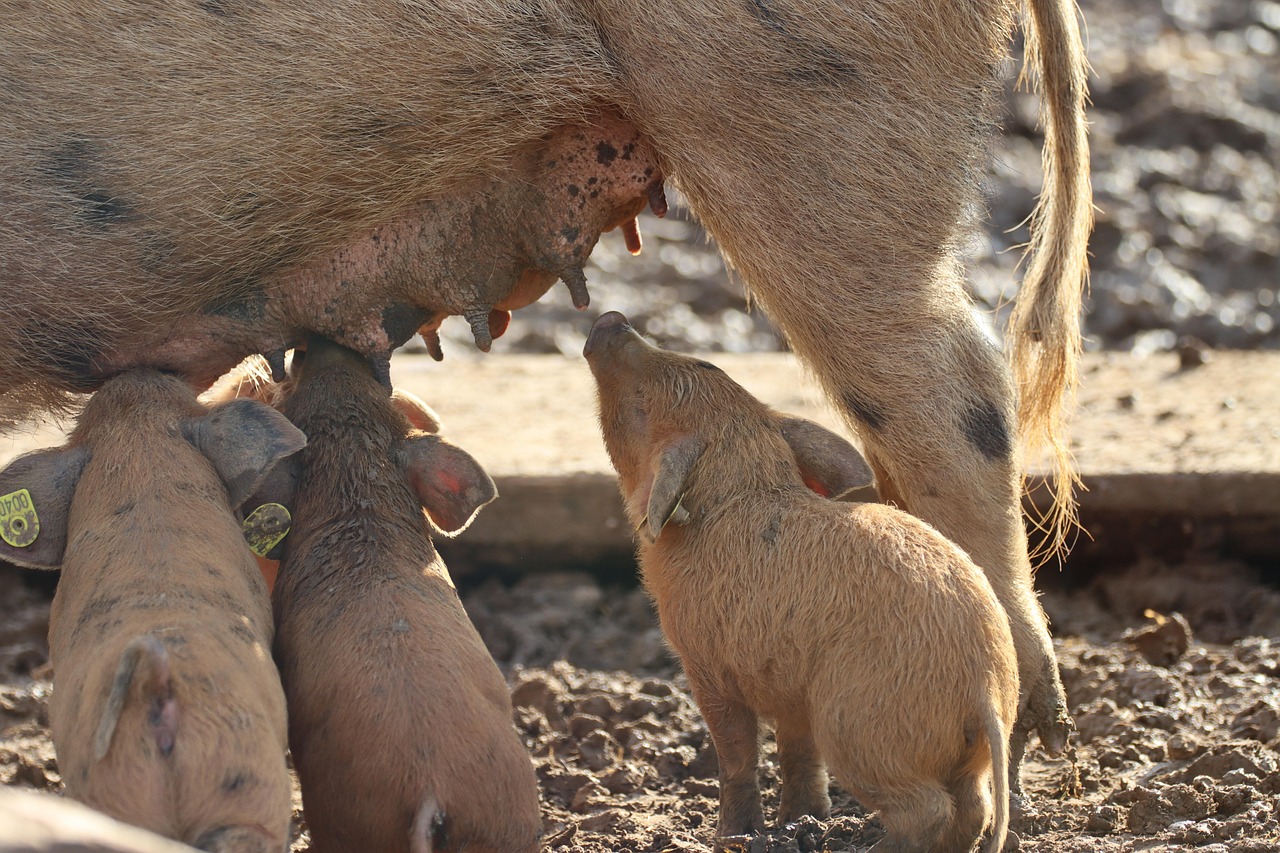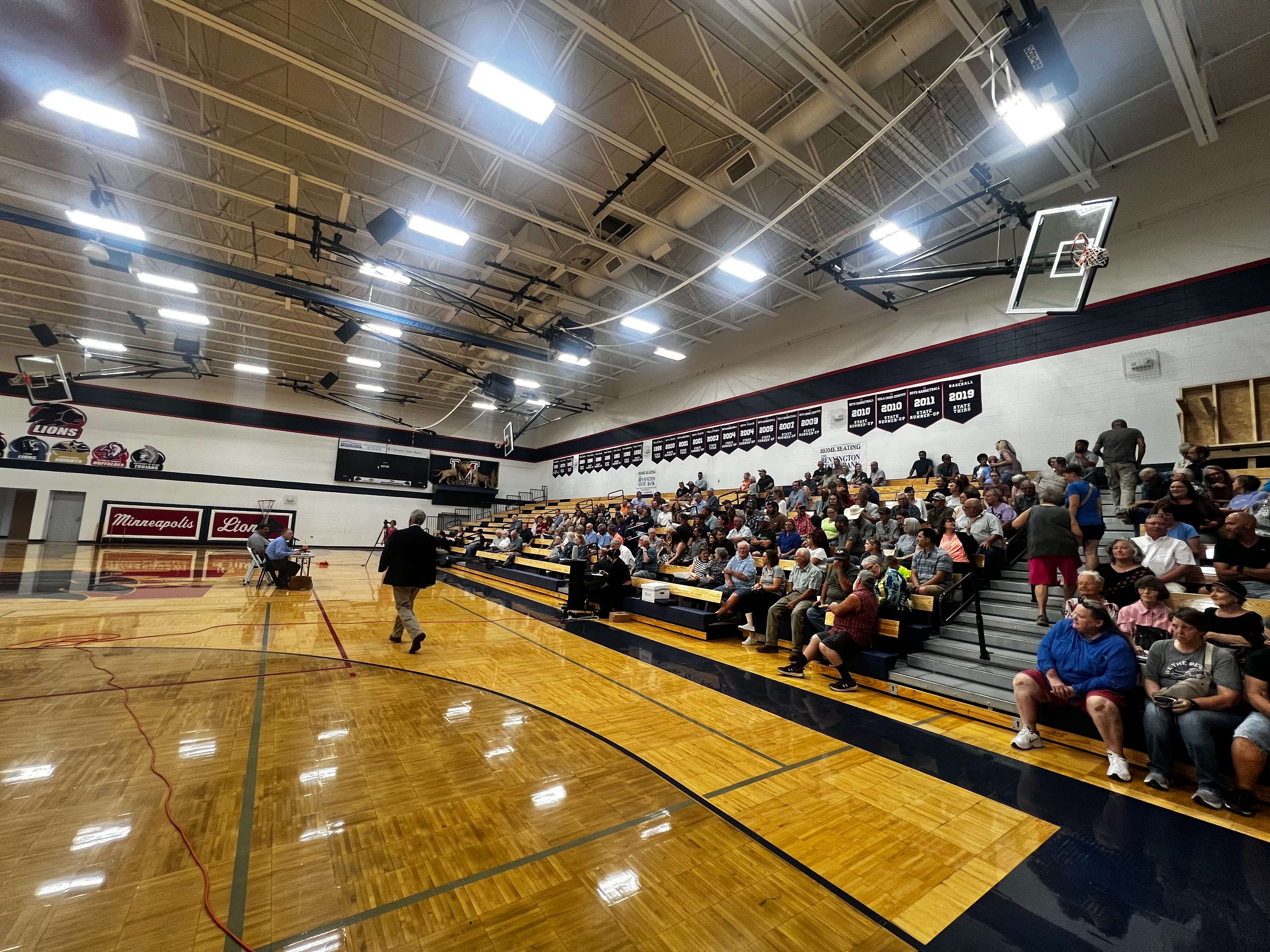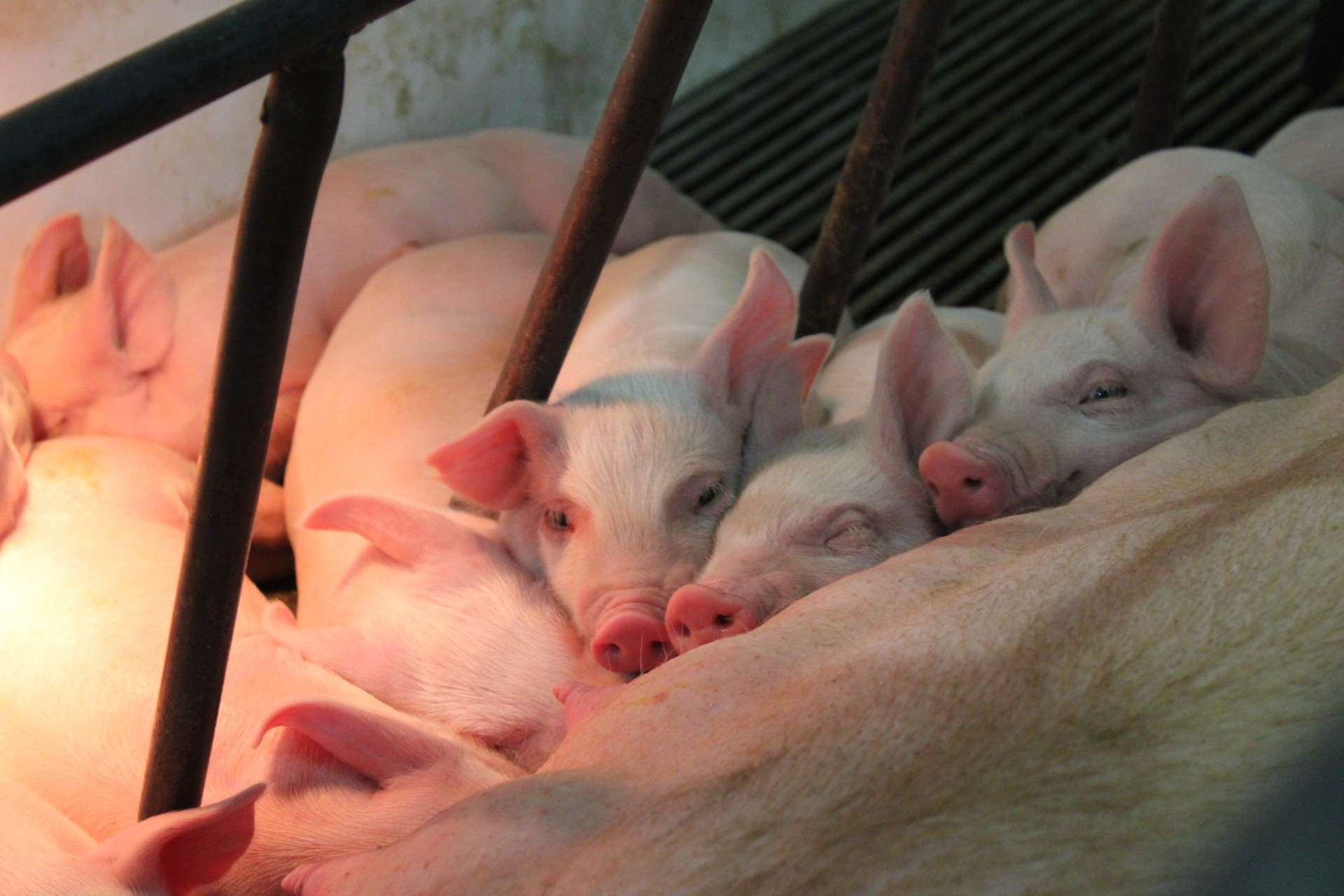
By: NICOLAS FIERRO
Salina Post
OTTAWA COUNTY - The Kansas Department of Health and Environment (KDHE) is currently reviewing a proposed sow farm/facility that is potentially looking to be established in Ottawa County, KS.
Timeline of proposal
On January 2025, the KDHE received a notice from Schwartz Farms (Minnesota Hog & Pork Producer, family-owned company that specializes in pork production) for the establishment of a breeding sow farm (female pig giving birth to at least one litter of piglets) 'Smoky Hills Pork' to be installed in Ottawa County.
That following month in February, both Schwartz Farms and Ottawa County members signed habitable structure separation agreements and was then submitted to the KDHE.
On March 4th, Schwartz Farms submitted a permit application to KDHE for the potential installation of Smoky Hills Pork. Then on March 13th, certified mail was distributed, which notified Ottawa County Commissioners and owners of habitable structures within a mile of the proposed farm of the forthcoming public notice.
Then on the 20th that same month, a public notice was sent out to inform the public that a permit was submitted and published in the Minneapolis Messenger (official Ottawa County paper).
Afterwards, the public was given until April 20th to provide comments towards the KDHE on how they feel about the potential establishment of Smoky Hills Pork.
Furthermore, on May 29, the KDHE notified public of the intent to issue a draft permit. From there, the public was given until June 9th to give their comments towards the agency.
Then on July 9th, KDHE assembled a public hearing with members of Ottawa County at the Minneapolis Jr/Sr High School gym regarding the proposed sow farm/facility. The public had the opportunity to voice their opinion on where they stood about the proposed permit, as they were given a total 3 minutes to speak.
The majority of the public who spoke were 'against' the permit, but many other members of Ottawa County who attended were 'for' it. Those who were against the permit voiced concerns about 'water contamination, the volume of animals, wastewater, lagoon liners, health and the location of the proposed facility.'

Views of those who are 'against' the sow farm
“Its a bad location because it is (proposed) in a sensitive groundwater area,” said Ottawa County resident, Kathy Scharplaz. "According to Schwartz' permit application, the facility is proposed in a sensitive groundwater area and some of these export fields are apart of that as well."
According to Scharplaz, sensitive groundwater areas 'designate areas where it is fairly easy for contaminants to get into the groundwater.'
Cassie Roth, one of the leading advocates that is fighting against this permit said she first heard about the proposed sow farm, when a farmer (who owns land on the location of the proposed facility) drove to her house and told both Cassie and her husband about it. She commented she 'had no idea about the proposed sow farm' and is concerned since she lives a mile away from the proposed facility.
Roth stated that she and her husband were concerned about their quality of water and started to speak about the proposed sow farm with other surrounding neighbors. Roth and her husband then thought to start a petition to potentially stop the permit. Roth and other Ottawa County residents also received letters from the KDHE about what Schwartz Farms wanted to do as far as installing the sow farm.
In the meantime, Roth got in touch with Scharplaz to talk about the proposed sow farm.
“She (Scharplaz) did a whole research paper on CAFO. She is very passionate about this,” said Roth.
Roth stated that a presentation was then put together on June 30th to show how the facility could negatively affect the community.
According to the KDHE, the permit for Smoky Hills Pork is a maximum capacity facility of 14,976 head (5990.4 animal units) of swine weighing more than 55 pounds each and 30,583 (3,058.3 animal units) of swine weighing less than 55 pounds, for a total of 9,048.7 animal units. The farm is proposed to be located in the Southeast quarter in Ottawa County.
Ottawa County resident, Kyrsten Rodenbeek stated the process of the proposal has 'moved forward with very little public notification or community engagement.'
"It appears the process has moved forward with very little public notification or community engagement," she said. "Many of us only learned about it recently, well after initial steps had already been taken, and we’re concerned that it’s being pushed through before the broader public has a chance to weigh in."
Views of those who are 'for' the sow farm
Despite many residents wanting to not go forward with the permit, other Ottawa County members have voiced their opinion on how they feel about the CAFO.
David Kiser thinks there are 'alot of positives' when it comes to Schwartz Farms' "Smoky Hills Pork."
"This facility will bring economic growth of the area," said Kiser. "The county has been stagnant and we need to get something going so we can provide more jobs. In my opinion there are alot of positives with this.”
Though there are several concerns with the overall quality of water in Ottawa County, Kiser believes there will be 'no effect' on the groundwater if this sow farm were to be installed. He also commented that the proposed lagoon which would be set, would be difficult to experience an overflow.
“There will be no effect on the groundwater and the plants will take up the nitrates," he said, "I just don't see a possibility of that happening. We are going to have to get 10-15 feet of rain for the lagoon to overflow."
Though Kiser is on the other side of the public's perspective, he is still open to hearing their opinion and not making enemies with those who are 'against' the permit.
“We are all still neighbors at the end of the day."
Another Ottawa County resident Beau Cline, described that his wife used to manage a hog farm and did not mention of her experiencing any health issues. He disagrees the smell that would come from the proposed facility would affect people's health.
“I think they are over exaggerating about the smell," Cline said.

Schwartz Farms comments
Schwartz Farms Inc. is a 2nd generation family-farm company that has been in operation for 50 years. With their primary operation being in the pork industry, Schwartz Farms employs over 550 full-time individuals and owns sows in the upper Midwest, predominantly in Minnesota, Kansas, Iowa, South Dakota and Nebraska.
Schwartz Farms told Salina Post, they are very ‘grateful’ for those who are 'for' the permit, but are also aware of the comments who are 'against' it.
“The concerns that the public brings forth are also things we also care very deeply about, whether that is safeguarding the environment, providing a safe and positive working environment for our people, caring for our animals, protecting the groundwater and just in general supporting the communities we are proud to call home,” said Owner, Tim Schwartz.
Tim noted that they work with teams of engineers to design the farm, along with the installation of the lagoon liner.
“We make sure what we construct meets the standards of the KDHE and we will do just that.," said Tim. "We have to do testing in advance of the permit to establish whether the ground is suitable, and there are technical standards we must meet. The engineers were very satisfied with the clay soil that is present on the site to meet and exceed the technical requirements for the lagoon liner.”
Schwartz Farms has two other farms in Kansas and are set ‘in close proximity of the other two.'
Though Schwartz is based outside of Kansas, the family-owned company promises to still provide 'philanthropic efforts' to the local communities they base their facilities in. Schwartz commented on how they are excited about potentially working with Ottawa County and the economic activity it will create.
According to Schwartz, the company donates around $120,000 to the local communities they 'call home.'
Members of the public have voiced concerns about the 'lack of accountability' there would be, in the event if 'anything were to go wrong' from the sow farm. Furthermore, that the 'county and residents alone would have to deal with the consequences.'
Schwartz Farms stated 'there are clear consequences for non-compliance,' and they 'take that seriously.'
"In the rare event of a catastrophic issue, we are required to activate emergency response plans, notify the appropriate regulatory agencies and take immediate action to address and remediate the situation—under their direct oversight," said Owner, Tim Schwartz. "Our long-standing track record of environmental compliance and good standing in the communities, we have farms reflects our commitment to doing the right thing."
KSA Statutes
According to CAFO statutes from the KDHE, swine facilities are required to follow specific various guidelines. Most of those guidelines include:
Protection from pollution
As per KSA 65-171d:
"Protect the soil and waters of the state from pollution resulting from underground storage of liquid petroleum gas and hydrocarbons, other than underground porosity storage of natural gas; “control the disposal, discharge or escape of sewage (as defined in KSA 65-164)"
Pollution in this context means:
"Such contamination or other alteration of the physical, chemical or biological properties of any waters of the state as will or is likely to create a nuisance or render such waters harmful, detrimental or injurious to public health, safety or welfare, or to the plant, animal or aquatic life of the state or to other designated uses; or (B) such discharge as will or is likely to exceed state effluent standards predicated upon technologically based effluent limitations."
Public notification
Once the KDHE has received an application for a permit for construction of a new swine facility, the KDHE is required to a per KSA 65-1,179:
"Publish in the Kansas register ( official state newspaper, serving as a publication for various public notices, including proposed and adopted administrative regulations, new state laws, bond sales, open meeting notices, and state contracts) a notice of receipt of the application"
Required distances from water
KSA 65-1,180 provides information on the “required distances from water” for a swine facility.
Lagoon standards and the monitorization of water wells
“The facility shall maintain a log of removal of the manure or wastewater from the facility and such log shall contain the following:” "The facility shall provide to the hauler of the removed manure or wastewater the most recent manure nutrient analysis conducted pursuant to subsection (c) of K.S.A. 65-1,182 and amendments thereto, if the removed manure or wastewater are to be land applied.”
"The sides and bottom of such lagoon or pond shall be lined with:
(i) A compacted soil liner with a minimum depth of one foot and maximum seepage rate of 1/8 inch per day; or
(ii) an impermeable liner on top of a compacted soil liner with a minimum depth of one foot and maximum seepage rate of 1/4 inch per day.
In KSA 65-1,180 there is more information about 'odor control’ and ‘dead animal handling.’
Investigations, services and orders; fees
(a) "The secretary of health and environment is authorized and directed to establish by duly adopted rules or regulations a schedule of fees to defray all or any part of the costs of administering the water pollution control permit system established by K.S.A. 65-165 and 65-166,"
"All investigations, services and orders rendered, issued or promulgated under the provisions of K.S.A. 65-171d, and amendments thereto, shall be made by such agency, section or division of the department of health and environment, or any of them, as may be designated by the secretary of health and environment, and all fees collected shall be remitted by the secretary to the state treasurer in accordance with the provisions of K.S.A. 75-4215, and amendments thereto. Upon receipt of each such remittance, the state treasurer shall deposit the entire amount in the state treasury to the credit of the state general fund.
"Regardless of whether irrigation water is added, whenever swine waste is applied to crops or land, the secretary of health and environment is authorized to investigate, inspect or conduct any manner of examination or review of the application of swine waste. No swine waste shall be applied to crops or land in excess of agronomic application rates."
"Failure of the operator of a swine confined feeding facility to implement a nutrient utilization plan approved by the secretary of health and environment shall be considered a violation of the Kansas chemigation safety law for which the secretary may suspend a permit pursuant to K.S.A. 2-3310, and amendments thereto, or may impose a civil penalty pursuant to K.S.A. 2-3317, and amendments thereto, or both."

Awaiting a decision
According Kansas statute KSA 17-5908: County Commissioners can independently permit or deny the CAFO.
Ottawa County commissioners have currently not made a decision and chose not to comment about Smoky Hills Pork.
Ottawa County Commissioner Duane Morris, told Salina Post they will make no comment at this time, as per their attorney.
Salina Post will provide any updates and information once received as far the decision on the permit.





